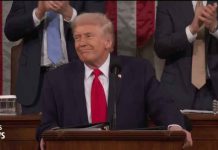
President Donald Trump is determined to reverse military damage done by vaccine mandates by reinstating service members expelled for refusal, sparking debates on health mandates and personal choice.
Key Takeaways
- Defense Secretary Lloyd Austin’s vaccine mandate led to over 8,000 discharges.
- National Defense Authorization Act overturned the vaccine mandate in January 2023.
- Fiscal Year 2024 Act aims to restore retirement benefits for discharged servicemembers.
- Trump plans to reinstate discharged troops with full back pay and apologies.
- The U.S. military faces ongoing recruitment and retention challenges.
Mandate And Its Consequences
Defense Secretary Lloyd Austin mandated vaccination for all U.S. servicemembers, resulting in the discharge of over 8,400 troops, primarily affecting the Marine Corps. The policy was deemed necessary for military readiness, achieving high vaccination rates of up to 99% in some branches. However, these separations have prompted criticism, exacerbating existing recruitment and retention challenges.
In response to this controversy, President Trump committed to reinstating affected personnel, promising full back pay and rectified ranks. This commitment, described by Trump’s Secretary of Defense nominee, Pete Hegseth, includes a public apology and a call to address “tens of thousands of service members [that were] kicked out because of an experimental vaccine.” This move aims to recognize perceived undue hardships faced by discharged troops.
Congressional Actions
The vaccine mandate was ended on January 10, 2023, following Congress’s decision through the National Defense Authorization Act, which allowed corrections in personnel files for retirement benefits. Despite these legislative measures, discharged servicemembers are still awaiting reinstatement, prompting actions like the introduction of the Reinstate Our Troops Act.
“Service members who were kicked out because of the experimental vaccine, they will be apologized to. They will be reinstituted with pay and rank,” said Pete Hegseth.
The Fiscal Year 2025 National Defense Authorization Act further reinforces efforts to recruit those discharged back into the military. Austin’s continued responsibility to amend servicemembers’ files reflects ongoing pressure from Congress and the Trump administration to rectify the situation comprehensively.
Implications And Future Steps
The reinstatement pledge by Trump signifies a pivotal alteration in military health policy, emphasizing personal choice in vaccination decisions. With intentions to “rehire every patriot who was fired from the military,” Trump underscores the importance of acknowledging Personal freedoms while managing national defense.
This initiative comes amidst broader policy promises, including energy independence and addressing international conflicts. The strategy aims to strengthen recruitment and retention, restoring discharged members and reinforcing the military’s preparedness for future challenges.


